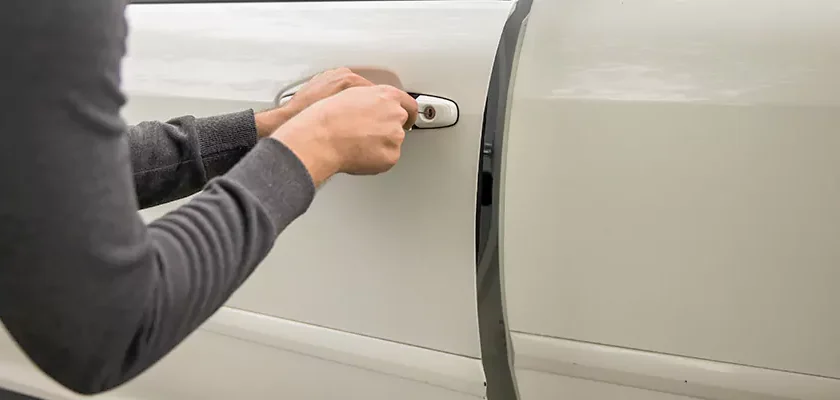Buying a home is one of the biggest investments most people will ever make. With home prices continuing to rise in Arizona, it’s more important than ever to make sure you’re getting your money’s worth when purchasing a property. While a home inspection is not required by law in Arizona, it’s highly recommended to get one before closing on a home. A thorough home inspection by a certified professional can give you peace of mind that you’re not buying a money pit filled with hidden defects. Here’s what you need to know about home inspections in Arizona and how a certified home inspector can help protect your investment.
Why Get a Home Inspection?
Most buyers do not have the knowledge or experience to spot potential issues with the home’s structure, systems, or components. A home inspection allows an unbiased third party who is an expert in home construction and systems to uncover any defects or safety hazards. Without an inspection, you may end up being responsible for expensive repairs or even safety issues after move-in.
A home inspection gives you the information you need to make an informed decision on the home purchase. If major issues are found, you can use the inspection report to negotiate with the seller for repairs or a reduced price. You also have the option to walk away if repairs would be too costly. Without an inspection, you won’t have any idea about the condition of the home until after you own it.
What Does a Home Inspector Check?
A home inspection is a visual examination of the physical structure and systems of the home. While inspection standards can vary, a comprehensive home inspection will include the evaluation of:
- Foundation – Checks for cracks, signs of settling, moisture issues
- Framing – Checks for structural problems
- Roof – Checks condition of roof coverings, drainage, attic
- Plumbing – Checks functionality of fixtures, supply/drainage pipes, water pressure
- Electrical – Checks wiring, breakers, outlets, and operation of light fixtures
- HVAC – Checks heating and cooling equipment, thermostats
- Appliances – Checks basic operation of built-in appliances
- Interior – Check walls, floors, windows, doors, and ceilings for damage
- Exterior – Checks siding, windows, drainage, decks, porches
- Site conditions – Checks basics of lot grading, drainage near home
Inspectors will also look for evidence of termites, wood-boring insects, rodents, or other pests. They use specialized tools and methods to find issues that may not be visible to the naked eye. A certified professional inspector knows where to check for common problems in homes built in certain eras and will be familiar with Arizona state and local codes.
What Won’t a Home Inspector Check?
While inspectors check the basics of function for appliances, they do not do performance testing beyond operating the controls. Whole-home inspections also do not include checking for lead, asbestos, radon, mold, or other environmental hazards – these require separate specialized tests to detect.
The inspector is limited to visual examination and operation of basic functions. They will not take apart, move, or disrupt any components of the home to look behind or underneath. For example, they can check visible electrical wiring, but won’t move appliances to check behind them. Areas that are inaccessible due to storage, furniture, or other items also cannot be inspected.
Should You Attend the Home Inspection?
It’s highly recommended that you attend the inspection so you can see the home through the inspector’s experienced eyes. You’ll get to hear their observations and feedback in real-time rather than reading it later in the report. Attending the inspection also allows you to ask questions as they come up. Any concerns about certain issues can be discussed on the spot.
If you’re unable to attend in person, ask if you can join virtually via video call. Some inspectors offer live video streaming of the inspection so buyers can participate remotely. This allows you to get all the benefits of attending without having to be on site.
What to Look for in an Inspector
State laws and regulations related to home inspections vary, so be sure to research the requirements for your state. In Arizona, home inspectors are not licensed or regulated by the state. Any person can legally perform home inspections in Arizona, even with no qualifications or experience.
That’s why it’s extremely important to choose experienced, Arizona-certified home inspectors to get the highest quality inspection. There are a few professional certifications that indicate an inspector’s advanced training and expertise:
- ASHI – The American Society of Home Inspectors is the oldest and largest U.S. association for home inspectors. ASHI-certified inspectors must follow strict standards and ethics guidelines. They perform over 400 hours of inspections in the field before certification.
- InterNACHI – The National Association of Certified Home Inspectors provides training programs and certification exams for home inspectors. InterNACHI-certified inspectors must pass exams and adhere to a code of ethics.
- International Code Council – The ICC provides nationally-recognized certifications for building inspectors including home inspectors. Exams cover building codes, inspection methods, and report writing.
Always ask about an inspector’s experience, education, credentials, and memberships in professional organizations. Confirm they carry errors and omissions insurance as well as general liability insurance for protection. It’s a good sign if they provide follow-up support after the inspection to answer any additional questions. Reputable inspectors stand behind their inspections and want satisfied clients.
What to Expect in a Home Inspection Report
Once the inspection is complete, you will receive a detailed written report of the inspector’s findings. This will include descriptions and photos of any issues or defects noted in each area of the home. Most inspectors follow industry standards for formatting their inspection reports. Expect a summary or overview of the home’s overall condition first, followed by detailed results for each part of the inspection.
Inspection reports for older homes or those in poor condition may run over 50 pages long. Newer homes or those in great shape may have reported under 10 pages. Glossy sales brochures or pamphlets do not provide the level of valuable detail you get in a professional inspection report.
The report will received within 1-3 business days after the inspection. This gives the inspector time to review findings, annotate photos, and create a thorough, personalized document just for the home. Be sure to take the time to review the entire inspection report closely, and follow up with your inspector about any concerns.
Using the Home Inspection Report
A home inspection report in hand gives you important power when purchasing a home. If the inspection reveals significant issues or safety hazards with the home, you have options:
- Request repairs. Use inspection findings to negotiate with the seller to lower the price or have them repair serious defects before closing.
- Cancel the contract. If repairs would be too costly, you may opt to cancel the purchase contract if inspection contingencies allow.
- Adjust offer. If defects are minor, request a price reduction to cover the costs of repairs you’ll have to make.
- Walk away. Without an inspection, defects are unknown. An inspection protects your investment by allowing you to withdraw if the home is a “money pit”.
Even if the home is in good shape, the inspection still provides value. It either verifies the home’s condition or empowers you to negotiate repairs or a lower price. For major defects, the cost of repairs can be many times more than the inspection fee. Not getting a home inspection is like buying a used car without having a mechanic look at it. An inspection protects your largest investment.
How to Choose the Best Home Inspector in Arizona
Finding the right home inspector takes a bit of research to feel confident you’re getting accurate, qualified service. Here are tips for choosing the best home inspector for your needs in Arizona:
- Look for certifications like ASHI or InterNACHI to confirm advanced expertise.
- Check credentials like engineering, contracting, or building inspection degrees.
- Ask about years of experience in performing home inspections.
- Look for membership in organizations like ASHI and ICCA.
- Confirm they carry liability insurance and E&O insurance.
- Look for advanced technology like thermal imaging cameras.
- Read through sample inspection reports to see thoroughness.
- Check for local references and reviews from past clients.
- See if they offer warranties on inspection services.
- Ask about the response time for delivering the full report after the inspection.
- Look for customized recommendations for home maintenance.
Avoid choosing an inspector based on the lowest cost alone. The potential savings from using the lowest bid inspector can easily be wiped out after hiring a more qualified inspector to double-check their work. Be wary of new inspectors offering rates far below competitors just to get clients. There’s no substitute for experience when it comes to thoroughly inspecting a home.
The Takeaway
Buying peace of mind is just as important as buying your dream home. A professional home inspection gives you objective insights you need to protect your investment and prevent future headaches. While home inspections are not mandatory in Arizona, they are strongly advised to keep you safe and financially secure in your new home. A reputable certified home inspector acts as your advocate and provides the confidence that you’re making a sound purchase.





